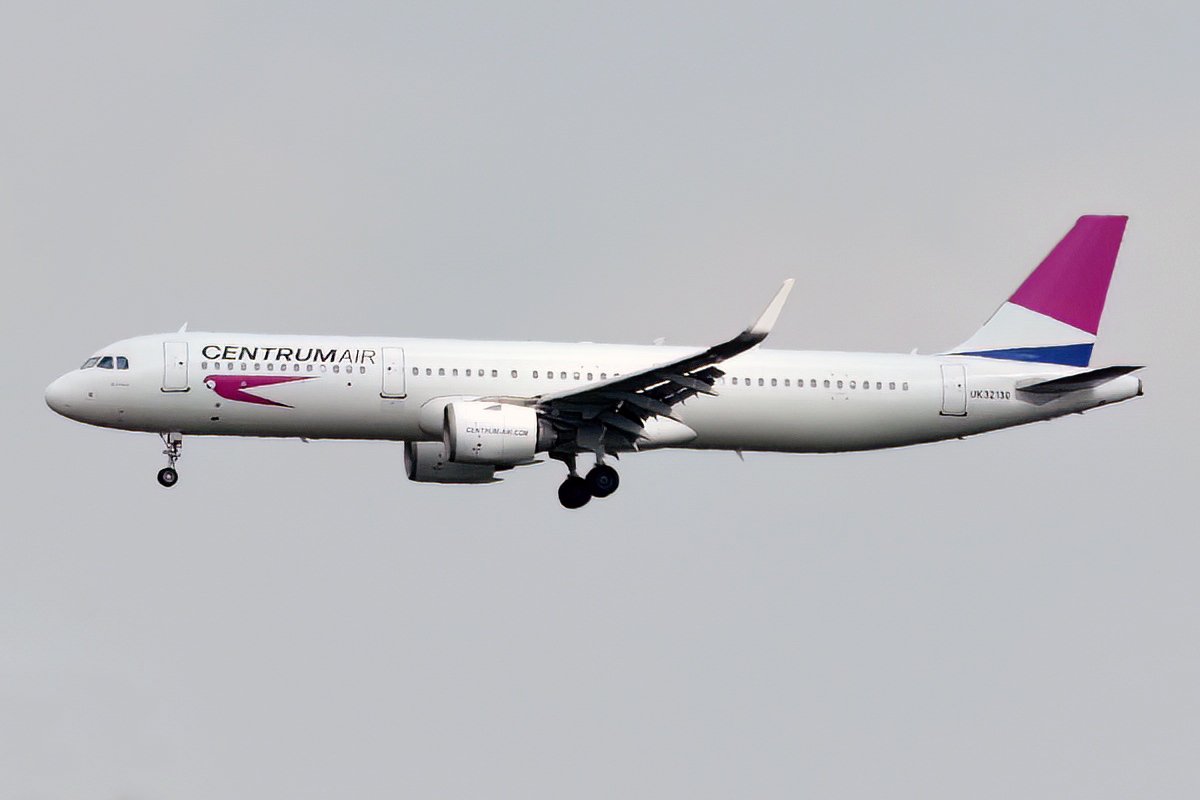Travel Guides & Articles
Middle East Travel Sector Raises Serious Concern about Safe Travel as Iran-Israel Have New Conflict Causing Airspace Closures and Flight Reroutes, Impacting Trip from Israel, Iran, Jordan, and Iraq: New Update

Saturday, June 14, 2025
On Friday, June 13, 2025, a sudden and unprecedented missile attack by Iran on Israel triggered widespread disruptions in global air travel. The attack, which was launched in retaliation for Israel’s strikes on Iranian nuclear facilities, led to the closure of airspace over multiple countries, including Iran, Israel, Jordan, and Iraq. This escalation of tensions has caused significant disruptions in the aviation sector, with dozens of international flights being diverted or canceled, affecting travelers worldwide.
The impact of these disruptions rippled across continents, especially affecting Middle Eastern and European flights. Airlines, including major international carriers like Air India, Qatar Airways, and Emirates, were forced to adjust their routes, while several flights from European carriers were rerouted due to the airspace closures. This event marks the beginning of what could be a prolonged period of uncertainty for global air travel, with repercussions on the economy, tourism, and flight operations.
The escalating conflict between Israel and Iran has severely disrupted global air travel. On June 13, 2025, airspace closures over Iran, Israel, Iraq, and Jordan led to widespread flight cancellations and rerouting, impacting thousands of travelers. Major airlines, including Air India, Emirates, and Lufthansa, faced delays and significant operational challenges. Middle Eastern hubs like Tel Aviv, Tehran, and Dubai were particularly affected. Safety concerns and rising fuel prices are expected to increase airfare costs and travel times, further straining the tourism industry. Experts warn of prolonged disruptions as airlines avoid conflict zones. This situation has led to a decline in tourism to the Middle East, with travelers opting for more stable destinations due to safety concerns.
Travel Advisories Issued by Major Countries
In response to the escalating situation, several governments have issued updated travel advisories:
- United States: The U.S. State Department has advised against all travel to Iran, Iraq, and Israel, citing the risk of missile attacks and other security threats.
- United Kingdom: The UK Foreign, Commonwealth & Development Office (FCDO) has updated its travel advice, warning against all but essential travel to Israel and parts of the West Bank.
- Australia: The Australian government has joined the U.S., UK, and other nations in issuing travel warnings, urging citizens to exercise increased caution when traveling to the Middle East.
The Initial Impact: Flight Cancellations and Rerouted Journeys
As the conflict between Israel and Iran unfolded, airspace in the region was swiftly shut down for safety reasons. This led to the immediate rerouting of several long-haul flights, particularly those passing through the affected areas. Airlines such as Air India, which operates international routes between major cities in Asia, Europe, and North America, were directly impacted by the airspace closures. In total, 17 pairs of Air India flights were either diverted or forced to return to their points of origin, significantly disrupting the schedules of thousands of passengers.
Some of the diverted Air India flights included:
- AI130 (London Heathrow–Mumbai): Diverted to Vienna
- AI102 (New York–Delhi): Diverted to Sharjah
- AI116 (New York–Mumbai): Diverted to Jeddah
- AI2018 (London Heathrow–Delhi): Diverted to Mumbai
- AI129 (Mumbai–London Heathrow): Returned to Mumbai
- AI119 (Mumbai–New York): Returned to Mumbai
- AI103 (Delhi–Washington): Returned to Delhi
- AI106 (Newark–Delhi): Diverted to Vienna
- AI188 (Vancouver–Delhi): Diverted to Jeddah
- AI101 (Delhi–New York): Diverted to Frankfurt/Milan
- AI126 (Chicago–Delhi): Diverted to Jeddah
- AI132 (London Heathrow–Bengaluru): Diverted to Sharjah
- AI2016 (London Heathrow–Delhi): Diverted to Vienna
- AI104 (Washington–Delhi): Diverted to Vienna
- AI190 (Toronto–Delhi): Diverted to Frankfurt
- AI189 (Delhi–Toronto): Returned to Delhi
The disruption caused by the missile attacks created a domino effect, impacting airlines globally and stranding thousands of passengers across different time zones. As airspace over Iran and Israel remained closed, flights that were scheduled to pass through these regions were either forced to take longer detours, adding hours to travel time, or were canceled outright.
Middle Eastern and European Flights Affected
The airline industry in the Middle East was also significantly impacted. Major carriers such as Qatar Airways and Emirates Airlines experienced significant diversions, with several of their long-haul flights rerouted to alternative airspaces. Istanbul Airport, a major global hub, reported disruptions of at least 19 flights due to airspace closures. Meanwhile, in the United Kingdom, British Airways had to reroute its London to Dubai flight to Larnaca, Cyprus. Other carriers, such as El Al, redirected flights from Rhodes to Tel Aviv, while Royal Jordanian Airlines rerouted a Paris-Amman flight.
Flight tracking platforms reported that multiple European airlines, including Lufthansa and Swiss International Airlines, were also forced to reroute or return flights that were set to traverse Iranian airspace. In particular, Lufthansa had to turn back three flights en route to India and Dubai, which added up to eight extra hours to their travel time.
The Impact on Air Travel Costs and Operations
This disruption in air travel is not only affecting the immediate schedules of airlines but also creating longer-term implications for the global travel industry. Captain NK Beri, a former Air India pilot with over 20,000 hours of experience, explained that the rerouting of flights due to airspace closures would result in longer travel times and increased fuel consumption. He projected that travelers could see an increase of at least 10-20% in airfares due to the added costs incurred by airlines for fuel and detours.
Additionally, the longer flight paths require more fuel and increase the strain on aircraft availability and crew rotations, which could further lead to delays and cancellations in the weeks ahead. As flights take detours through safer airspaces, airlines are being forced to make operational adjustments, leading to higher operational costs and longer wait times for passengers.
Safety Concerns and Aviation Risks
The sudden closure of airspace and the ongoing regional instability raise serious concerns about the long-term safety of air travel in the affected regions. Sharda Prasad, former Commissioner of the Bureau of Civil Aviation Security (BCAS), warned that the closure of airspace is often the first response during military escalations, as it is intended to protect civilian flights from potential threats. However, he pointed out that it could have wider-reaching consequences, including the potential for airport seizures or aircraft hijackings, actions that could disrupt global aviation on an even larger scale.
Prasad further explained that when a country closes its airspace, commercial flights must divert to alternative routes, often taking longer and less direct paths to reach their destinations. This not only leads to increased fuel consumption but also places more pressure on airports and air traffic controllers, who are now tasked with managing an increased number of flight detours and delays. Given the unpredictable nature of the situation, travelers and airlines must remain flexible, prepared for potential changes in air routes and schedules.
Long-Term Effects on Global Tourism and Travel Habits
The ripple effects of the Israel-Iran conflict will likely be felt in the tourism sector for months to come. Dr. Subhash Goyal, Chairman of the Tourism Committee at the Indian Chamber of Commerce, expressed concerns that the disruptions in air travel could lead to a rise in airfares, which may discourage international tourists from visiting regions that rely on affordable flights. He also noted that with the increased airspace restrictions, airlines would be forced to reroute flights over more expensive and longer routes, further raising operational costs that will inevitably be passed on to consumers.
Tourism to destinations such as Israel, Iran, and the broader Middle Eastern region may be impacted by both safety concerns and increased costs. As the conflict continues to unfold, travelers may choose to delay or reconsider travel plans to the affected regions, leading to a decline in bookings for airlines and tourism providers. Furthermore, destinations that are geographically close to conflict zones, like Turkey and Greece, may also see a decrease in visitors, as concerns over air travel safety and regional instability weigh on tourists’ minds.
On the other hand, some destinations may see a surge in travel as tourists reroute their plans to avoid the Middle East. Countries such as the UAE, Saudi Arabia, and Egypt, which serve as alternative gateways to the region, may experience an uptick in bookings from travelers who need to adjust their itineraries due to the closure of airspace and flight disruptions.
The Global Economic Impact and Airline Adjustments
The ongoing conflict between Israel and Iran is likely to have broader economic consequences on the global travel and tourism sectors. Fuel costs, which already account for a significant portion of airline operating expenses, could see a sharp increase as geopolitical tensions escalate. Should crude oil prices rise further in response to the ongoing conflict, airlines may be forced to increase airfares, further deterring travelers from booking flights, particularly for long-haul routes.
Industry analysts predict that the combination of longer flight times, increased fuel consumption, and geopolitical uncertainty will likely make air travel more expensive and unpredictable. Travelers should expect a more costly and less flexible travel experience in the coming months as the aviation industry grapples with these challenges.
Air Travel Industry Faces Uncertainty Amid Geopolitical Tensions
In conclusion, the missile strikes between Israel and Iran have caused significant disruptions in global air travel, affecting not only airlines operating in and around the Middle East but also creating ripple effects across Europe, Asia, and beyond. The immediate impact of airspace closures, rerouted flights, and increased costs is already being felt by passengers and airlines alike. As the situation continues to evolve, the global travel industry will need to remain adaptable to the changing landscape, with airlines facing heightened operational challenges and travelers dealing with higher costs and potential delays.
As tensions in the Middle East escalate, travelers must stay informed about the latest developments and be prepared for changes in their travel plans. While the long-term effects on tourism remain uncertain, it is clear that the conflict between Israel and Iran will continue to shape the future of global air travel, affecting both the economics of the industry and the choices of international travelers.
Travel Guides & Articles
SpiceJet, IndiGo, Air India Issue Travel Advisories As IMD Predicts More Showers

Heavy rains across the national capital in the last two days disrupted flight operations, prompting airlines and the Delhi airport to issue travel advisories for passengers. Multiple airlines cautioned that adverse weather could cause delays and cancellations, while urging travellers to plan in advance and monitor their flight status.
Airlines issued advisories after intense rainfall in parts of Delhi-NCR on Sept. 3, which led to waterlogging, traffic congestion and slower movement to and from the Indira Gandhi International Airport.
The India Meteorological Department (IMD) has predicted further spells of rain for the next two days in Delhi and the National Capital Region (NCR), keeping fliers on alert.
Travel Guides & Articles
TBO acquires Classic Vacations to expand global reach

TBO has officially announced its agreement to acquire Classic Vacations, a U.S.-based luxury travel wholesaler, from Phoenix-headquartered Najafi Companies. The deal is valued at up to USD 125 million (INR 1,100 crore) and marks a major milestone in TBO’s expansion strategy. This acquisition combines TBO’s advanced technology-driven platform with Classic Vacations’ robust network of luxury travel advisors and suppliers.
Classic Vacations generated USD 111 million in revenue and an operating EBITDA of USD 11.2 million for the fiscal year ending December 31, 2024. With nearly five decades of brand recognition, Classic Vacations has built strong relationships in the premium travel sector, making it an ideal fit for TBO’s vision of scaling its global footprint.
According to Gaurav Bhatnagar, co-founder and joint managing director of TBO, “Classic Vacations has consistently delivered outstanding service, earning the trust of over 10,000 travel advisors across the U.S. Their expertise aligns perfectly with our mission of redefining global travel through innovation and scale.” Bhatnagar emphasised that the Classic Vacations brand will continue independently while leveraging TBO’s extensive technological and distribution strengths.
Ankush Nijhawan, co-founder and joint managing director of TBO, added that the acquisition underlines the company’s broader strategy of pursuing both organic and inorganic growth. He highlighted that TBO is actively open to future strategic partnerships that strengthen its portfolio and further position it as a global leader in premium and luxury travel solutions.
Melissa Krueger, CEO of Classic Vacations, expressed enthusiasm for the partnership, stating, “TBO’s technology-first solutions are designed to empower travel advisors with unparalleled tools, resources, and insider access. This integration ensures we bring even more value to our advisors and clients.” Krueger stressed that the collaboration enhances Classic Vacations’ role as the premier luxury travel partner while expanding its global reach.
This acquisition signals a new phase for both companies, bringing together complementary strengths to serve an evolving luxury travel market. With demand for high-end travel projected to surge worldwide, the partnership positions TBO and Classic Vacations to accelerate growth, maintain brand trust, and deliver seamless experiences to customers, suppliers, and employees across the globe.
Travel Guides & Articles
Centrum Air to launch Delhi–Tashkent direct flights

Centrum Air, Uzbekistan’s largest private airline, has announced the launch of direct scheduled flights between Delhi and Tashkent, starting from October 3, 2025. The new service aims to strengthen air connectivity between India and Uzbekistan, offering travellers an affordable, comfortable, and time-efficient travel option.
The flights will operate twice weekly, every Tuesday and Friday, providing flexibility and convenience for both business and leisure travellers. Centrum Air’s modern fleet, including Airbus A320neo, A321neo, and the wide-body A330-300, will be deployed on this route to ensure a safe and comfortable journey.
According to the announced schedule (local time), flights from Delhi will depart at 12:10 and arrive in Tashkent at 14:50. From Tashkent, flights will leave at 06:55 and land in Delhi at 10:55. These timings are designed to offer smooth connections and ease of travel for passengers.
Abdulaziz Abdurakhmanov, Founder and CEO of Centrum Air, expressed pride in opening the direct Delhi–Tashkent route. He emphasized that the service would not only improve travel convenience but also enhance Uzbekistan’s role as a regional hub, linking India to Central Asia, Europe, and the Middle East.
Abhishek Goyal, Executive Director & CEO of Aeroprime Group, highlighted the significance of being Centrum Air’s exclusive GSA in India. He stated that the partnership would bring immense opportunities for tourism, business, and trade, while ensuring competitive fares and strong support for passengers and cargo operations.
With Aeroprime Group managing sales, marketing, and customer services in India, travellers can expect seamless experiences. Additionally, the new service offers convenient onward connections from Tashkent to destinations such as Almaty, Istanbul, Dubai, Tel Aviv, and Copenhagen, making it a valuable option for both direct and transit passengers.
-

 Business6 days ago
Business6 days agoThe Guardian view on Trump and the Fed: independence is no substitute for accountability | Editorial
-
Tools & Platforms3 weeks ago
Building Trust in Military AI Starts with Opening the Black Box – War on the Rocks
-

 Ethics & Policy1 month ago
Ethics & Policy1 month agoSDAIA Supports Saudi Arabia’s Leadership in Shaping Global AI Ethics, Policy, and Research – وكالة الأنباء السعودية
-

 Events & Conferences4 months ago
Events & Conferences4 months agoJourney to 1000 models: Scaling Instagram’s recommendation system
-

 Jobs & Careers2 months ago
Jobs & Careers2 months agoMumbai-based Perplexity Alternative Has 60k+ Users Without Funding
-

 Education2 months ago
Education2 months agoVEX Robotics launches AI-powered classroom robotics system
-

 Funding & Business2 months ago
Funding & Business2 months agoKayak and Expedia race to build AI travel agents that turn social posts into itineraries
-

 Podcasts & Talks2 months ago
Podcasts & Talks2 months agoHappy 4th of July! 🎆 Made with Veo 3 in Gemini
-

 Podcasts & Talks2 months ago
Podcasts & Talks2 months agoOpenAI 🤝 @teamganassi
-

 Education2 months ago
Education2 months agoMacron says UK and France have duty to tackle illegal migration ‘with humanity, solidarity and firmness’ – UK politics live | Politics





















